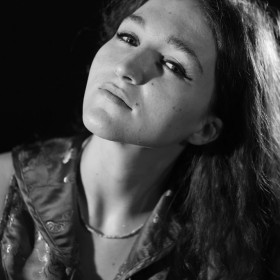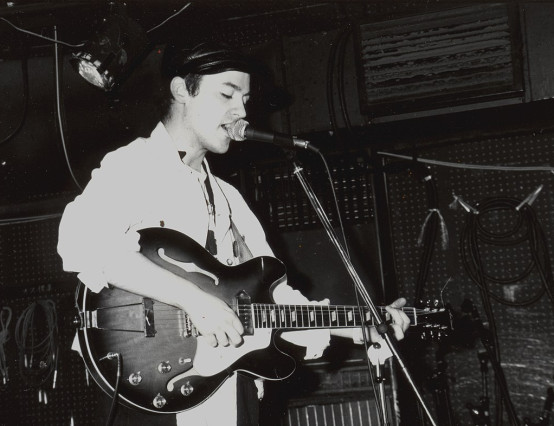The first was Les eaux célestes. French-born Camille Pépin is described as one of the classical world's rising stars. She has said that when composing, she always needs to go on a walk in nature, 'in the forest.' When you listen to her work, which sounds imbued with the very lifeblood of nature itself, it is easy to imagine the composer mindfully walking as if in a dream world through a beautiful deciduous forest and simply taking it all in. She says that nature gives her a clean mind and that the colours and textures she sees outside inspire her. Needless to say, after hearing her sweeping, awe-inspiring, rustling, gushing, and evocative impressionistic work, I feel compelled to explore the outdoors and embrace all that spring has to offer as the world holds its breath in anticipation of summer.
Les eaux célestes ('The Celestial Waters') is a short musical work just over 10 minutes in length that has four sections (which the composer calls'moments'). These were 1—cloud weaving; 2—the - The Separation, 3—the pearly years; and 4—the bridge of wings. The piece is based on a Japanese version of a Chinese legend about Orihime, the daughter of the God of the Sky. She weaves clouds to make clothes for the gods of heaven. The composer used metallic-tuned and up-tuned percussion to evoke a Chinese musical milieu in keeping with the themes explored within the piece. The energetic string parts and vivacious woodwind notes created a sense of forward momentum, as if the world were about to burst forth into bloom.
Overall, for me, Camille's work is an astonishing ode to nature that transports you to a serene place of pure wonderment, like taking a walk through a zen garden at 7 a.m. on steroids!
Francis Poulanc was one of the first openly gay composers who was simultaneously comfortable with his faith and his sexuality and did not see them as mutually exclusive. Gloria, a commission from a music foundation, can be seen as an outward representation of his inner moral struggles to be content with having faith and being openly homosexual. He said that whilst writing the piece, he had in mind ''those frescoes by Gozzoli where the angels stick out their tongues'' and ''some serious Benedictine monks who he saw reveling in a game of football. These seemingly incongruous images are indeed paralleled with the musical work, which is probably as irreverent as previous critics have described it to be. I could not listen to the singing while watching the words written on an electric whiteboard behind the BBC Symphony Chorus without a wry smile and an urge to laugh out loud. Sections of Gloria remind one of the parts of Bohemian Rapsody when it goes 'GALLILEO galileo GALLILEO galileo' in contrasting volumes. Poulenc himself seems to have been a walking paradox or contradiction; his mother was a Parisian with a taste for urban pleasure, while his father was a devoutly Catholic man from Southern France. I felt a lot of atheist feelings while watching the piece because of the words of the songs, which included asking God to deliver us from our sins and so forth. The music sounds very beautiful and devout, but there is definitely a shadow of humor in there somewhere too, but it is very subtle. I couldn't tell by listening whether it definitely is a dig at Christianity; however, it is funny, as I said, that it is constantly 'coming on strong' and then 'whispering and gliding' in rapid succession.
Hector Berlioz moved to Paris when he was 18 as a fairly musically inexperienced young man from a provincial town where he wouldn't have witnessed a full orchestra or seen many common instruments. His family intended for him to study medicine, but after being bitten by the music bug, he abandoned this to become a composer. Just nine years later, when he was 27, he had written this hour-long symphony. This is a testimony to his tenacity and passion for music.
While listening to the piece, I found it hard to imagine that it was written in the 1830's because during one section where the horns played, it reminded me so much of being at the movies. This symphony was inspired by the Irish actress Harriet Smithson, whom Hector Berlioz fell deeply in love with when he was 23 after seeing her perform in Shakespeare's Hamlet as Ophelia. He sent her many love notes, but she left Paris without reciprocating. Spurned by this rejection, Berlioz felt inspired to write this symphony to explore the pathos of an artist who is tormented by the vision of an unattainable woman who ultimately takes opium and experiences hallucinations. Everyone seemed refreshed after the interval so the time flew by in this section. I was simply struck by the inventiveness of the composer in his use of the instruments and choice of notes. I cannot recommend classical music enough after this I'm hooked!
You can hear the performance on BBC Sounds from May 2 to the 1st of June and also on BBC SO's on BBC iPlayer for a year after the date of the performance, which was April 19, 2024.








0 Comments